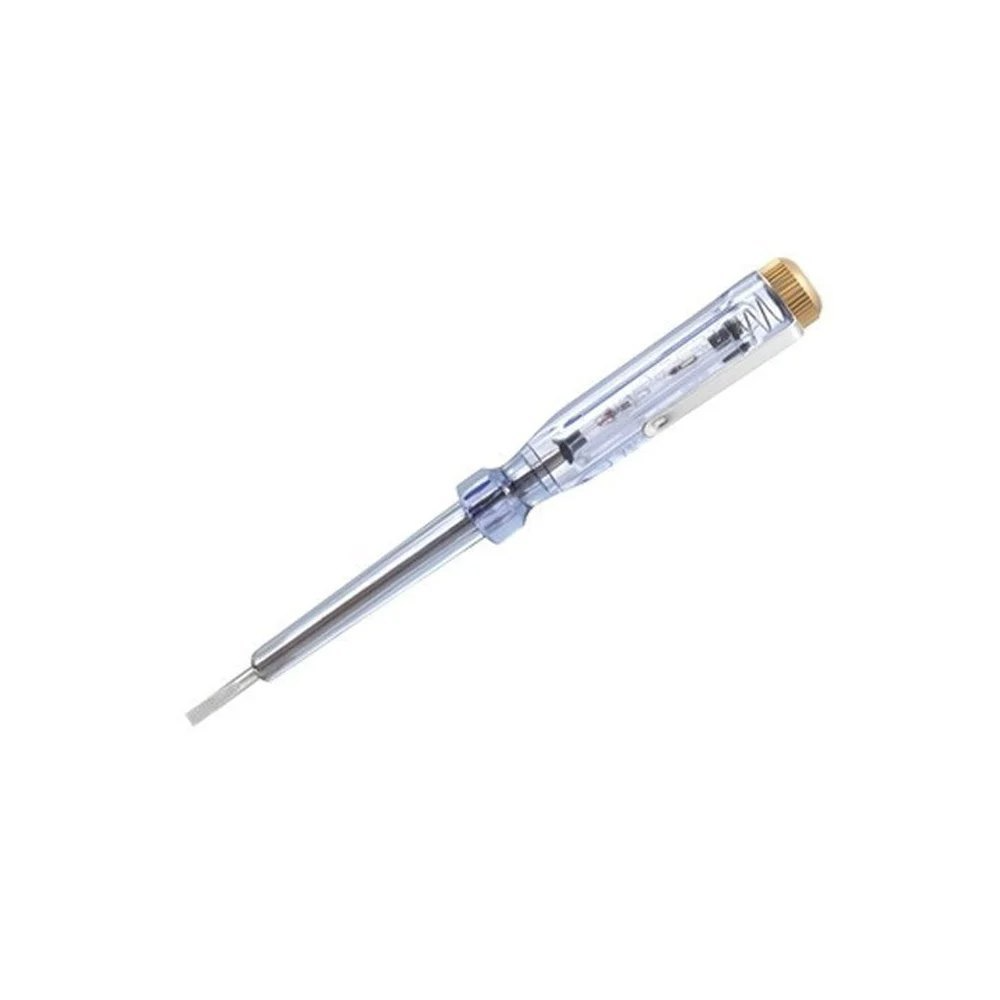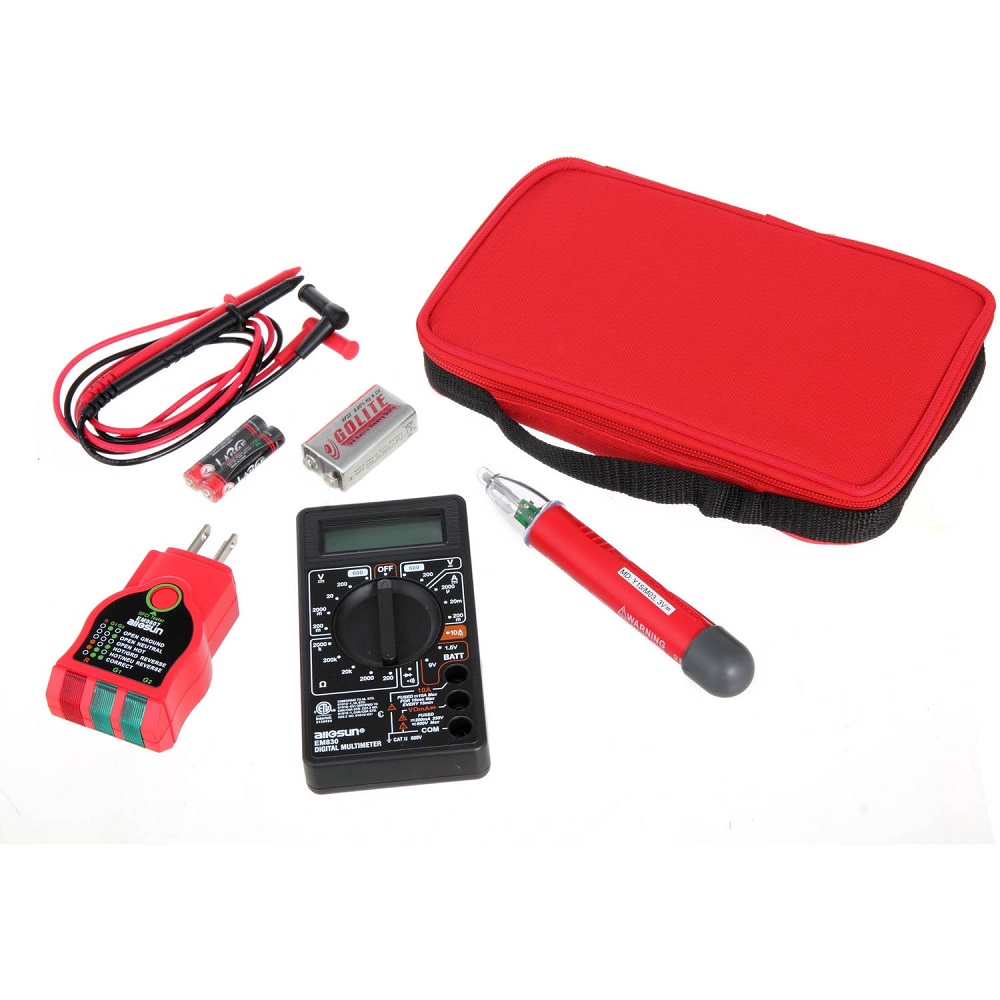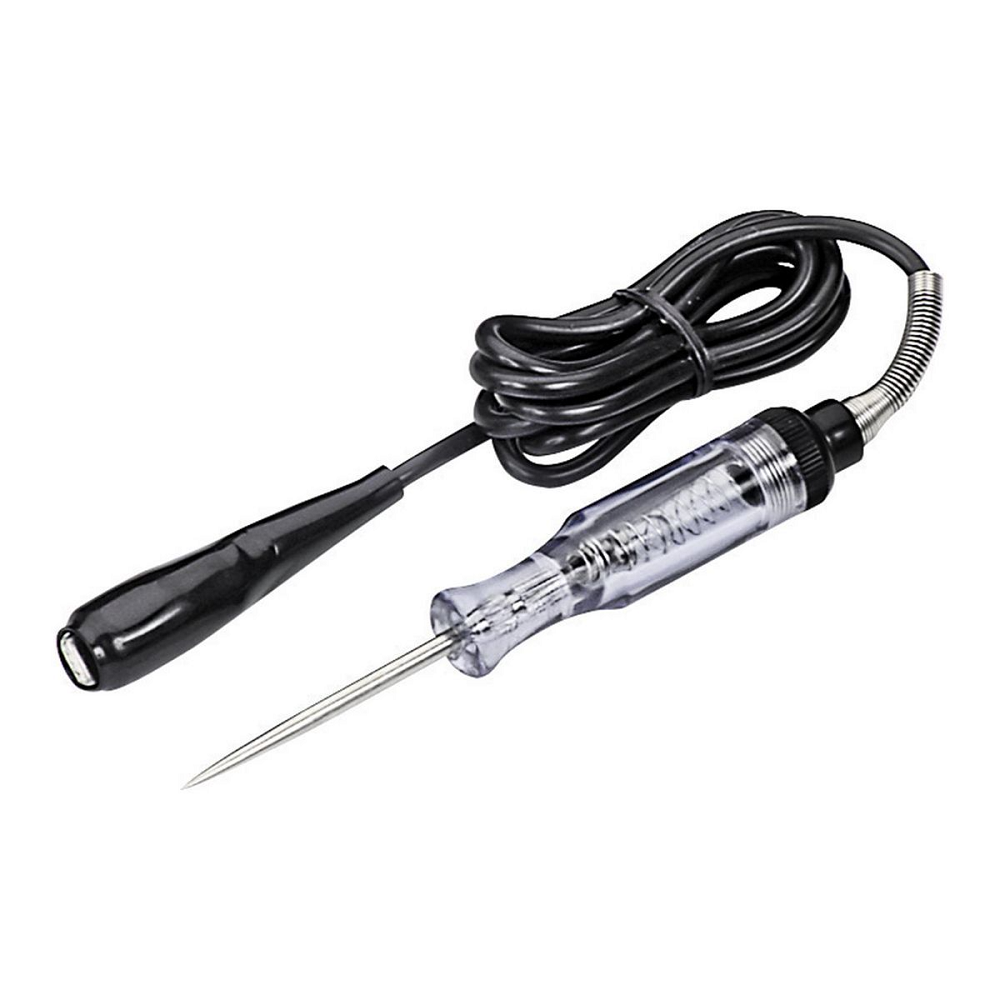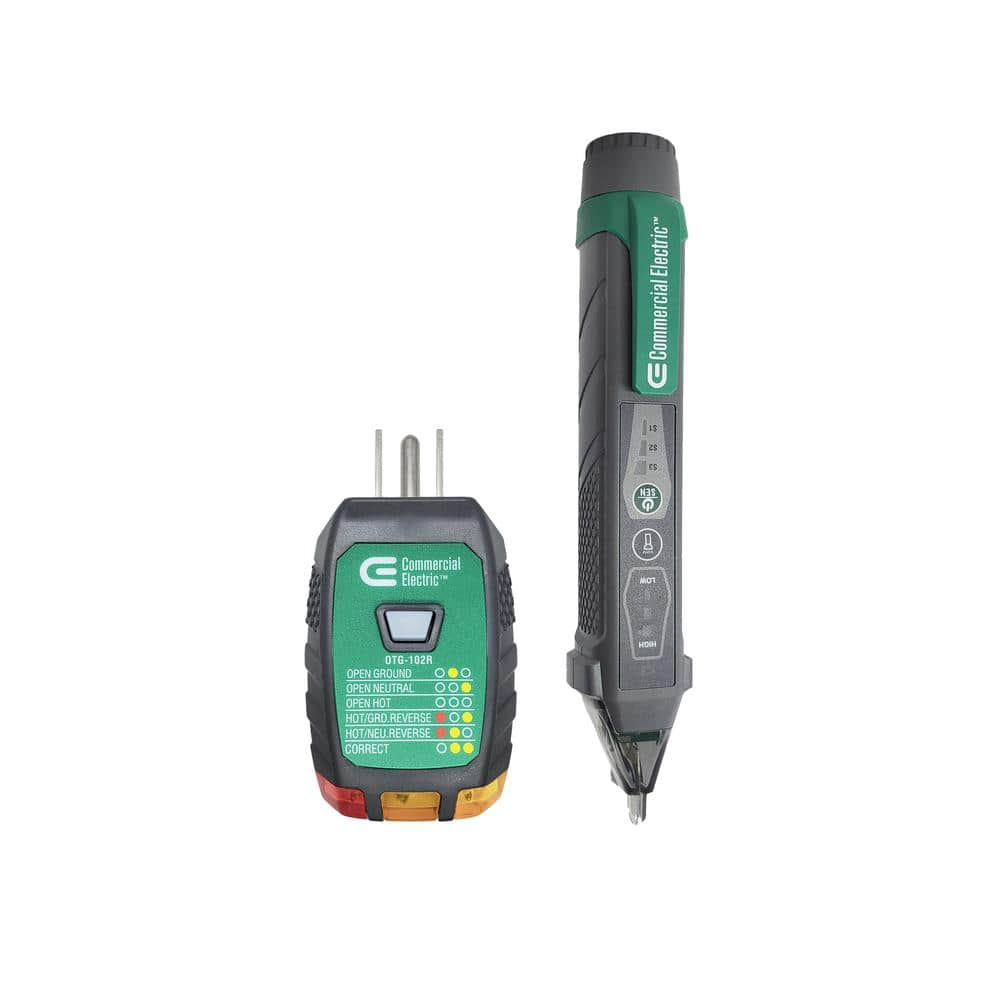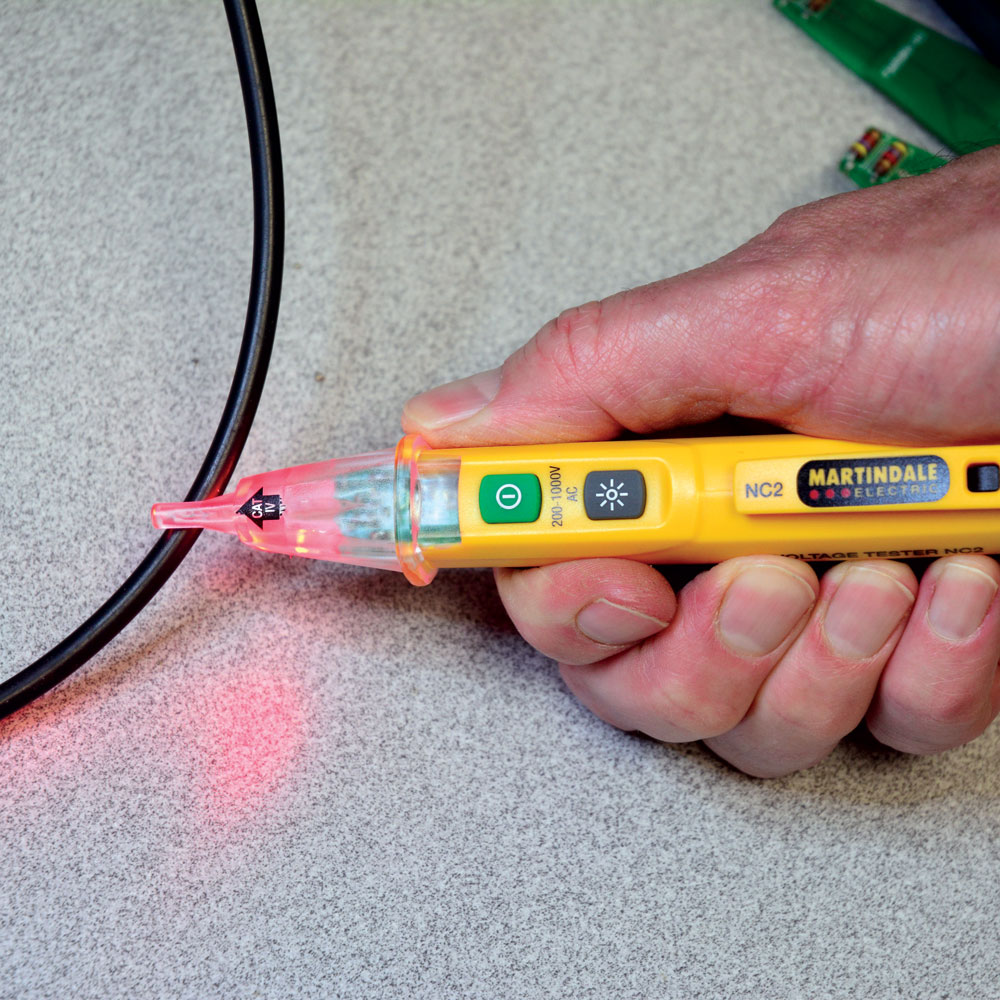Electrical testers play a crucial role in ensuring safety and efficiency in electrical systems. Whether you are a professional electrician or a DIY enthusiast, understanding how to accurately test electrical systems is essential. In this comprehensive guide, we will explore what electrical testers are, the various types available, their uses, and how to utilize them safely and effectively.
What is an Electrical Tester?
Electrical testers are devices designed to measure electrical parameters throughout circuits. They can verify the presence of voltage, continuity, and resistance, providing vital information during installation, troubleshooting, or maintenance. Testers vary from simple non-contact voltage indicators to more complex devices like multimeters. Each type has a specific function geared toward making electrical work safer and more efficient.
Types of Electrical Testers
The world of electrical testers is diverse, with several different types designed to serve specific functions. Knowing the various types can help users select the right tool for their specific needs.
Non-Contact Voltage Testers
Non-contact voltage testers are incredibly user-friendly. They can detect voltage without making contact with wires or connectors. This feature is especially useful for those who want to ensure safety before working on a circuit. Simply bring the tester close to a wire, and it will emit a light or sound if it detects voltage.
Anyone can use these testers with minimal training. They are ideal for quick checks around outlets, switches, and power lines. Still, they should not replace more thorough testing methods.
Multimeters
Multimeters are multi-functional tools that measure voltage, current, and resistance. They come in analog and digital versions, with digital multimeters becoming increasingly popular due to their ease of use and clarity.
For example, a multimeter can tell you if a circuit is live, how much current is flowing, or if a resistor is functioning correctly. This flexibility makes it an essential tool for both professional electricians and hobbyists.
Circuit Testers
Circuit testers are specialized devices that confirm whether there is current in a circuit. They usually have one or two leads and can indicate if a circuit is complete. Circuit testers are straightforward, with many featuring simple light indicators. When the light is off, there is no current; when it lights up, the circuit is live.
Their simplicity makes them a dependable option for diagnosing issues quickly. However, they lack some of the extensive functionalities of multimeters.
How to Use Electrical Testers Safely
Using electrical testers safely is crucial to prevent accidents and injuries. Always remember that safety is the top priority when dealing with electricity. Before using any tester, start by reviewing the manufacturer’s instructions. Each tester may have unique features or requirements that need your attention.
Check the tester for any visible damage before use. Cracked casings, frayed wires, or broken components can lead to inaccurate readings or dangerous mishaps. If your tester is damaged, do not attempt to use it. Replace it with a new device to ensure safety.
When testing, ensure you wear appropriate personal protective equipment (PPE) like gloves and safety goggles. This equipment can provide an extra layer of protection against unexpected electrical discharges.
It’s also essential to verify that the tester works properly before you start testing a circuit. One common method is to test the device on a known live circuit. If the tester doesn’t light up or indicate the correct voltage, it could be faulty. In that case, don’t hesitate to replace it before proceeding further.
During testing, maintain a safe distance from other conductive materials. This distance helps prevent accidental cross-circuit discharges. Always stand on a dry surface to reduce the risk of electric shock.
Practical Applications of Electrical Testers
Electrical testers are versatile tools widely used across various applications. From residential electrical repair to industrial maintenance, their uses are extensive. This section will delve into how these testers facilitate daily electrical tasks.
In Residential Settings
At home, electrical testers can play a significant role in ensuring safety and maintenance. Regular checks of outlets, switches, and appliances can prevent potential hazards. For example, if a light flickers or an outlet feels warm, using a tester can determine if there’s an underlying problem.
Homeowners can also use testers during installation. When adding new fixtures or outlets, verifying that circuits are live before connecting any wires is crucial. This step ensures that electricians or homeowners won’t experience electric shock while working.
Additionally, some homeowners benefit from having testers handy for troubleshooting appliances. A multimeter can check the condition of a toaster, microwave, or other small devices. This information can help determine if repairs or replacements are necessary.
In Industrial and Commercial Environments
In industrial and commercial settings, the application of electrical testers becomes even more critical. High-voltage equipment and complex circuits present increased risks. Regular testing helps maintain safety and operational efficiency.
For instance, maintenance teams rely on electrical testers to perform routine checks on machinery. They can ensure that circuits are functioning correctly and troubleshoot any issues. This testing can lead to timely repairs, reducing downtime and costs associated with system failures.
Moreover, electrical testers are essential for compliance with safety regulations. Many industries have regulations requiring routine checks of electrical systems. Regular testing using the appropriate devices ensures compliance and promotes a safer working environment.
DIY Projects
DIY enthusiasts also benefit from using electrical testers. Whether creating a simple lamp or embarking on a more complex wiring project, testers help ensure safety. They allow users to verify connections, check for shorts, and identify faulty components.
Using a tester can make a significant difference in project outcomes. Instead of relying on guesswork, DIYers can employ electrical testers to get accurate data about their electrical systems. Proper testing can also help them learn and understand more about electricity and how circuits function.
Choosing the Right Electrical Tester
Choosing the right electrical tester involves assessing your needs and the context in which the tool will be used. Understanding the different functionalities will make the selection process simpler.
Identify Your Purpose
To make an informed choice, start by identifying your primary need. Are you primarily interested in checking voltage? Or do you want to measure current and resistance, too? Your answers will help narrow down your options.
For basic voltage checks, a non-contact tester might suffice. However, for more detailed electrical work, investing in a multimeter could be worthwhile. Understanding the project scope will guide you toward making the right investment.
Consider Features
Once you identify your needs, consider the features that will enhance usability. Some testers have added functionalities like backlit displays, adjustable settings, or built-in flashlights. These features can make the testing process more efficient and user-friendly, particularly in low-light conditions.
It’s also essential to look for a tester that is comfortable to use. Ergonomically designed testers allow for better grip and control, reducing the risk of accidents during use. User reviews can provide valuable insights into the product you are considering.
Evaluate Price and Quality
Price is also a significant factor when selecting an electrical tester. While it’s tempting to choose the cheapest option, that may not be the best choice for safety and effectiveness. Investing in a higher-quality tester can lead to more accurate readings and reliable performance.
Evaluate different brands and models to find a tester that offers a good balance of price and quality. Sometimes, spending a little extra can result in a tool that lasts longer and performs better, ultimately saving you money in the long run.
Maintaining Your Electrical Tester
Proper maintenance extends the life of your electrical tester and ensures its accuracy. Regular care prevents many issues that could arise due to neglect.
Routine Checks
Make it a habit to perform routine checks on your tester. Ensure that all buttons and functions operate as expected. This step allows you to catch any malfunction early, preventing potential problems when you need the tester.
Regularly clean the device to remove dirt and debris. This cleaning can help maintain accurate readings and prolong the device’s lifespan. Follow the manufacturer’s guidelines for cleaning to avoid any damage.
Store Properly
Storing your tester correctly is also crucial. Keep it in a dry, dust-free environment. Exposure to moisture or harsh conditions can damage electrical components. Use a protective case to prevent physical damage when not in use.
Replace Components
Some testers have replaceable components, such as batteries or leads. Check these components routinely to ensure they are functioning correctly. Replace worn-out or damaged parts immediately to maintain safety and accuracy.
Conclusion
Understanding electrical testers is a fundamental skill for anyone working with electricity. As highlighted in this guide, these devices are not only crucial for safety but also improve efficiency in electrical work. The diverse types available cater to various needs, ensuring that there is a suitable option for everyone, from professionals to DIYers.
Using these tools correctly and safely is vital. By following best practices for testing, maintaining, and selecting the right tester, users can unlock the full potential of these essential devices. Whether in residential, industrial, or DIY contexts, electrical testers empower individuals to work confidently with electricity.
